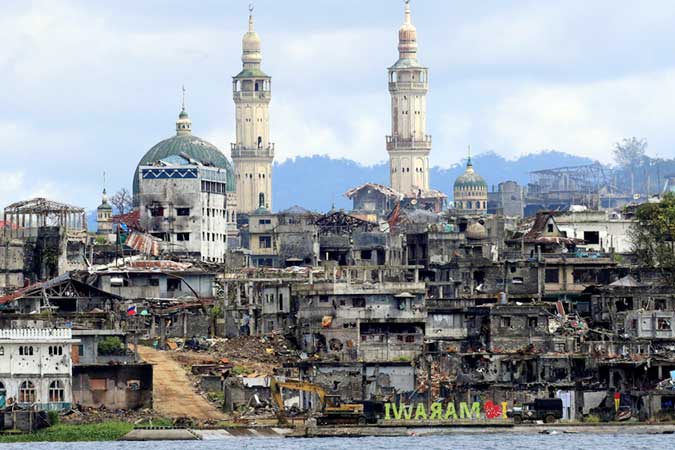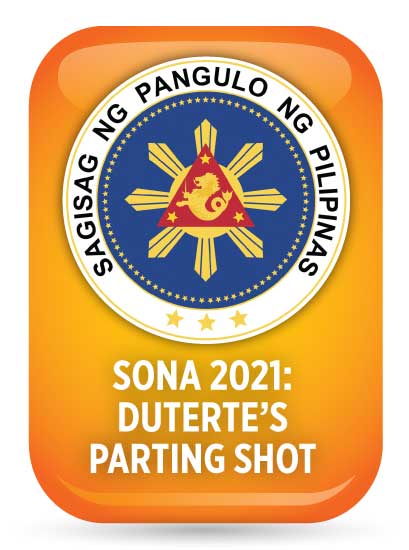Great expectations: Did Duterte live up to the hopes of the Bangsamoro?

By Marifi S. Jara, Mindanao Bureau Chief
MARAWI CITY-BORN and bred Sittie Asia Mangompia Mai was among the majority of voters in Mindanao, the southern islands in the Philippines, who chose Rodrigo R. Duterte in the 2016 presidential elections.
It was her first time to vote in a national poll and she was excited that also for the first time in the country’s history, a candidate from Mindanao was vying for the presidency.
Her enthusiasm was shared by her fellow Mranaw — their preferred spelling over the more commonly used Maranao — and they demonstrated this in their ballots.
 Of the more than 378,000 who turned up in polling precincts in Lanao del Sur, the province where Marawi City is the capital, 80% voted for Mr. Duterte.
Of the more than 378,000 who turned up in polling precincts in Lanao del Sur, the province where Marawi City is the capital, 80% voted for Mr. Duterte.
“The Mranaw people rooted for him because he is the first Mindanaowan to run for presidency,” said the 26-year-old leader of the social enterprise Mushroom for Change.
For the rest of Mindanao, majority in the six regions also voted for the long-time mayor of Davao City, although margins varied.
“It sparked hope especially to the Bangsamoro people as a whole for we had been clamoring for the historical injustices in our homeland to be addressed. And a president from Mindanao — who understands us and had lived with us is an advantage and it gives an assurance of support for the continuous peace processes and negotiations in regards to the passage of the Bangsamoro autonomy,” she said in an e-mail interview.
Mr. Duterte did not disappoint in terms of continuity.
The Bangsamoro Organic Law (BOL), the culmination of the 2014 peace agreement between the government and the Moro Islamic Liberation Front (MILF) that took 17 years to reach since talks started in 1997, was passed.
The landmark legislation was signed in 2018 despite the shock and devastation from the Marawi siege a year prior.
More than any destruction brought by a natural calamity in a disaster-prone country, the man-made ruination in Marawi had been a great unforeseen in Duterte’s presidency.
Ms. Mai, herself among the thousands of residents displaced, sees the war in Marawi as Mr. Duterte’s biggest shortfall.
“His (move to) quell rebellion during (the) Marawi siege, they failed to protect many innocent lives and recognize the families of the civilian victims,” she said.
The government is fixing up the city, but resentment simmers among families whose homes and lives have been upended, especially those whose properties are within the central and most devastated area.
Housing Secretary Eduardo D. del Rosario, who heads the task force handling the Marawi rehabilitation, reported in late June that overall accomplishment was at 68%, covering road networks, public buildings and spaces, housing for those who will be relocated, and mosques.
“The road networks are very important because these will signal for us to allow those residing in Sectors 4 to 9 to come home and build their respective houses by October,” he said.
He also expressed confidence that the overall reconstruction program will be completed before Mr. Duterte steps down.
However, the Marawi compensation bill, which aims to indemnify residents whose homes were destroyed by the five-month gun battle between government troops and Islamic State-affiliated local extremists, has not been certified as urgent by Mr. Duterte.
TRANSITION
Meanwhile, the new and more independent Bangsamoro Autonomous Region in Muslim Mindanao (BARMM) that was created based on the BOL is nearing a major crossroad with the supposed first election for 80 members of its parliament in 2022.
This first regular election is mandated under the BOL to be “held and synchronized” with the local and national polls.
The current parliament is composed of the Bangsamoro Transition Authority (BTA), whose members were appointed and formally started work on March 29, 2019. By June that year, the transition plan was in place and hopes were high that the BTA would be on track to achieve its tasks.
Then came the coronavirus pandemic.
With restrictions imposed and government resources at practically all levels being focused on the health emergency, Chief Minister Ahod B. Ebrahim, an MILF leader, led calls for an extension of the BTA.
Several laws were filed in Congress to extend the appointees’ term by another three years, and Mr. Duterte at the outset expressed full support to the proposal.
In late June, however, the President shifted to a “neutral” stance after a meeting in Malacañang with both the extension’s proponents and opponents, with the latter asserting the need for a publicly chosen mandate among the region’s leaders.
“The self-imposed ‘neutral’ position of President Rodrigo Duterte on the proposed extension of the transition period is unhelpful at this point,” said Michael Henry Ll. Yusingco, a senior research fellow at the Ateneo Policy Center of the Ateneo School of Government and the Institute of Autonomy and Governance based in Notre Dame University in Cotabato City.
He explained that the BTA “is essentially an extension of the office of the president, so it is only logical for them to seek the advice and intervention of President Duterte on this matter.”
By being neutral, “the President is actually sustaining the uncertainty hovering above the BARMM,” Mr. Yusingco said.
The BARMM chief minister, in his speech during the opening of the BTA’s 3rd regular session on June 15, again emphasized the need for an extension to ensure continuity in the peace and development programs.
“We reiterate, especially to the naysayers, that the extension of the transition period is never about power. It is about ensuring the successful implementation of the Bangsamoro peace process,” Mr. Ebrahim said.
“This is not just the legacy of the MILF or of the Duterte Administration but the legacy of this generation and a gift to the next generations of the Bangsamoro,” he said.
Youth leader Sittie believes that an extension is necessary and she would like to hear the President express support during his last State of the Nation Address.
“I hope to hear from the President in his last SONA that he will certify the Bangsamoro Transition Authority extension as an urgent bill because we do believe that ‘ang matatag na pamahalaan ay hindi pweding madaliin’ (A stable government cannot be rushed),” she said.
And a stable government, she said, would bring about “long-lasting peace.”



